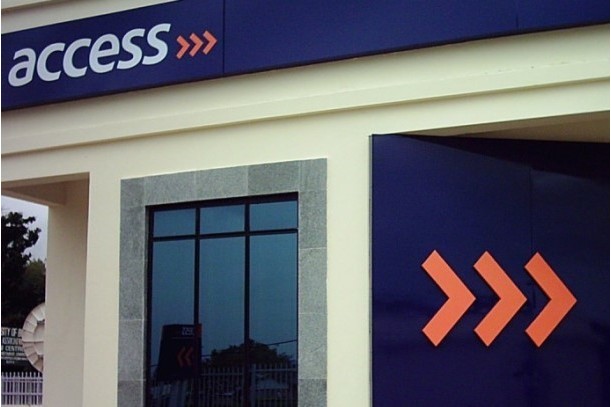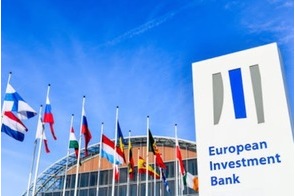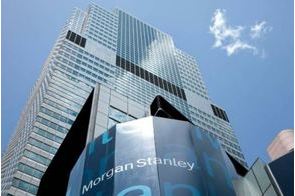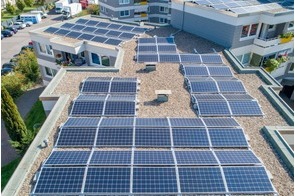Access Bank, FMDQ, others launch Nigerian green bond market development programme

Summary
The global green bond market has seen strong growth, with bond issuance rising from $11 billion in 2013 to almost $157 billion in 2017.
In December 2017, Nigeria became the first African country to issue a sovereign green bond. The country also became the world’s fourth sovereign issuer of green bonds. Poland was the first sovereign green-bond issuer, raising $750 million in 2016, followed by France, which raised $7 billion early last year. Fiji became the third sovereign issuer in October 2017. Indonesia and Belgium joined the ranks of green bond issuing countries earlier in 2018.
The global green bond market has seen strong growth, with bond issuance rising from $11 billion in 2013 to almost $157 billion in 2017. Part of that was contributed by Nigeria's green bond issuance of N10.69 billion ($29.7 million). The 5-year bond is the first tranche of a N150 billion programme.
Also known as climate bonds, green bonds are innovative debt instruments intended to encourage sustainability and to support climate-related or other types of environmental projects. Essentially, climate bonds are designed to leverage resources from domestic and international capital markets to drive sustainable development.
Signifying Nigeria’s readiness for this innovative security, Moody’s, the rating agency, assigned a GB1 (Excellent) grade to the country's green bond issue. According to the Debt Management Office (DMO), the green bond issue demonstrates Nigeria's determination to contribute to reducing carbon emissions and mitigating the effects of climate change in the country.
As part of Nigeria’s Nationally Determined Contributions (NDCs) as stipulated under the United Nations Framework Convention on Climate Change (UNFCCC) that Nigeria is a signatory to, the country has committed to reduce greenhouse gas emissions by 20% unconditionally and 45% with international support by 2030.
Access Bank Plc, on its part, has continued to demonstrate its leadership in sustainability in the Nigerian financial services sector. Last month, Access Bank joined FMDQ OTC Securities Exchange, an over-the-counter market operator for fixed income securities; and the Securities Exchange Commission (SEC) of Nigeria, to launch the Nigerian Green Bond Market Development Programme.
Other partners to the initiative, which was launched in Lagos last month, are Financial Sector Deepening Africa (FSD Africa), a non-profit funded by the UK’s Department for International Development; and Climate Bonds Initiative (CBI), an investor-focused non-profit mobilising investment from the capital market for climate change solutions.
The Nigerian Green Bond Market Development Programme was designed to foster investment in green bonds as an alternative to finance infrastructure and sustainable development. The programme will span a course of three years with a focus on developing guidelines and listing requirements for issuing green bonds in the Nigerian capital markets. The event in Lagos included roundtable sessions, which created awareness on the need to invest and grow the domestic climate bond market. The stakeholders were also exposed to new and existing projects that will deliver environmental benefits.
In his keynote address during the launch of the initiative, Dr. Herbert Wigwe, Group Managing Director/CEO of Access Bank Plc, said, “Access Bank is honoured to partner with this group of forward-thinking industry leaders that are truly concerned about creating and promoting processes and practices that will preserve resources today to create more opportunities for future generation.” He added that harnessing the opportunities inherent in green bonds will unleash a new wave of sustainable finance that will support the development of resilient infrastructure in Nigeria and Africa.
The event, whose theme was: "The Rise of Green Bonds-Global Trends and the Opportunity for Nigeria," brought together stakeholders and investors to explore how green finance can be deployed for impact investing in the country. Other notable speakers at the launch of the Nigerian Green Bond Market Development Programme included Minister of State for Environment, Mallam Ibrahim Usman Jibril; Deputy Governor of Lagos State, Dr Idiat Oluranti Adebule; Chairman, House Committee on Capital Markets and Other Institutions, Hon. Tajudeen Yusuf, among others.
Coming on the heels of Nigeria's sovereign green bond debut, the Nigerian Green Bond Market Development Programme is in alignment with the objectives of the sovereign bond, which include creating a benchmark for subsequent issuances of green bonds by state governments and corporates to finance environmental projects.
Part of the green bond's objectives, according to the DMO, is also to provide an opportunity for investors that are interested in preserving the environment to contribute to Nigeria’s efforts at environmental preservation, while earning income from a low-risk sovereign instrument. The bond issue will also go a long way to further diversify the federal government’s funding sources amid dwindled oil revenue.
Related
-
EU financiers parley on sustainable recovery in capital markets
In June, the ESM published its Social Bond Framework to enable it issue social bonds.
-
Two-thirds asset managers pursue sustainable investing – Morgan Stanley
The surge in sustainable investment activity has been spurred by rising investor demand and media coverage.
-
New report highlights trends in climate finance
51 per cent of banks offer green financial products and 53 per cent have processes for managing climate-related risks.










